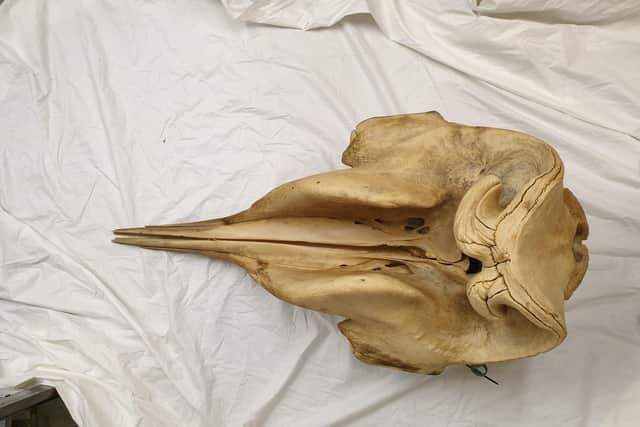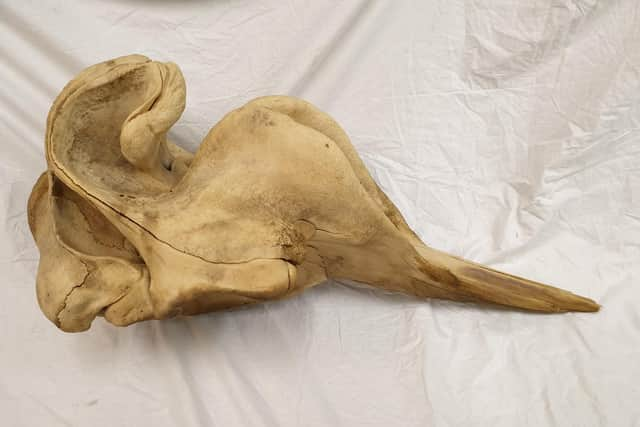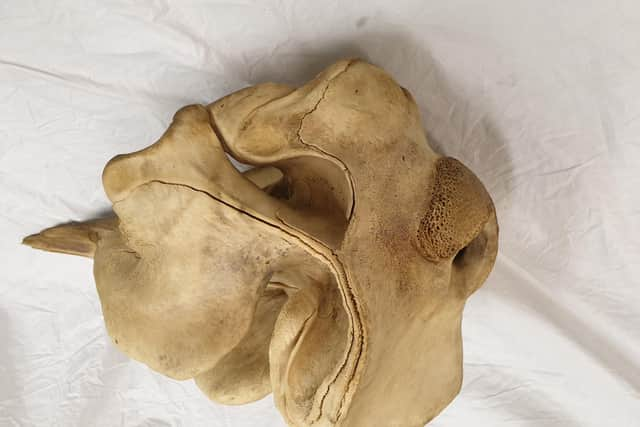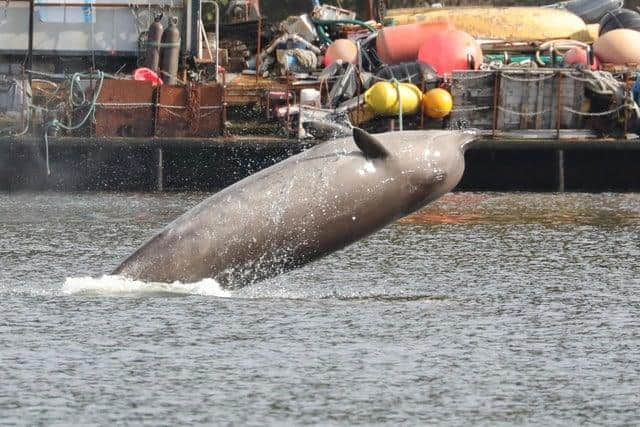Police Scotland appeal for missing 45kg bottlenose whale skull 'earmarked for study' which was taken from beach near Scottish border
The 45kg skull, belonging to a northern bottlenose whale, was left on Cocklawburn Beach near Berwick-upon-Tweed in October.
Inquiries have since revealed that the skull was removed at some point between October 19 and 22.
Advertisement
Hide AdAdvertisement
Hide AdPrior to this unusual incident the skull, which measures 1 metre x 60cms x 60cms, had travelled the length of Scotland after being removed from a beach near Cape Wrath in Sutherland.


Washed onto the beach in 2018, the whale carcass was being monitored by the John Muir Trust with plans to move the skull to National Museums Scotland to be studied.
It is illegal to possess any part of a whale, dolphin or porpoise without being licensed and any remains belonging to these species should not be removed from coastal areas.
Northern bottlenose whales are a protected species and rare visitors to Scottish waters.
Detective Sergeant Billy Telford, Police Scotland’s wildlife crime unit, said: "Whales, dolphin and porpoise are protected species in Scottish/UK coastal areas, and this includes their remains. People may not be aware that it is illegal to remove their remains from beaches and other coastal areas.


“This particular item had been earmarked for study. It is a rare example of this species in Scotland and therefore is of significant scientific interest to improve both our understanding of the species and its protection.
“It is a very big and unusual item and someone must know of its whereabouts. If you do then please contact Police Scotland so we can arrange for its return to the museum.”
Dr Andrew Kitchener, principal curator of vertebrates at National Museums Scotland, said: "Strandings of this mammal are rare and examples such as this can contribute greatly to the knowledge we hold about these incredible animals and provide a valuable resource to enable further future scientific study of the species and its ecosystem."
Advertisement
Hide AdAdvertisement
Hide AdDon O’Driscoll, of the John Muir Trust, said: "The Trust is not happy with the way the whale skull was taken from its land at Sandwood Bay and subsequently lost.


“We hope the police will be successful in finding it and that it may then be displayed at the National Museum for the benefit of the public.
“Exhibits like this are rare and provide an interesting insight into the anatomy of these specialised deep diving marine mammals."
According to the Whale and Dolphin Conservation website, northern bottlenose whales are mostly found in pods of between four and 20 whales.
Given their deep-diving skills, the favourite food of northern bottlenose is deep-water squid and the species can dive to more than 1,400 metres (4,600ft) and stay submerged for about hours. Most of the time, though, a typical dive is much less strenuous and lasts less than 10 minutes.


Northern bottlenose whales are found in the cooler waters of the North Atlantic Ocean but commercial whaling in the 19th and 20th centuries has reduced their numbers and they are constantly at risk of ingesting plastics and from interactions with fisheries.